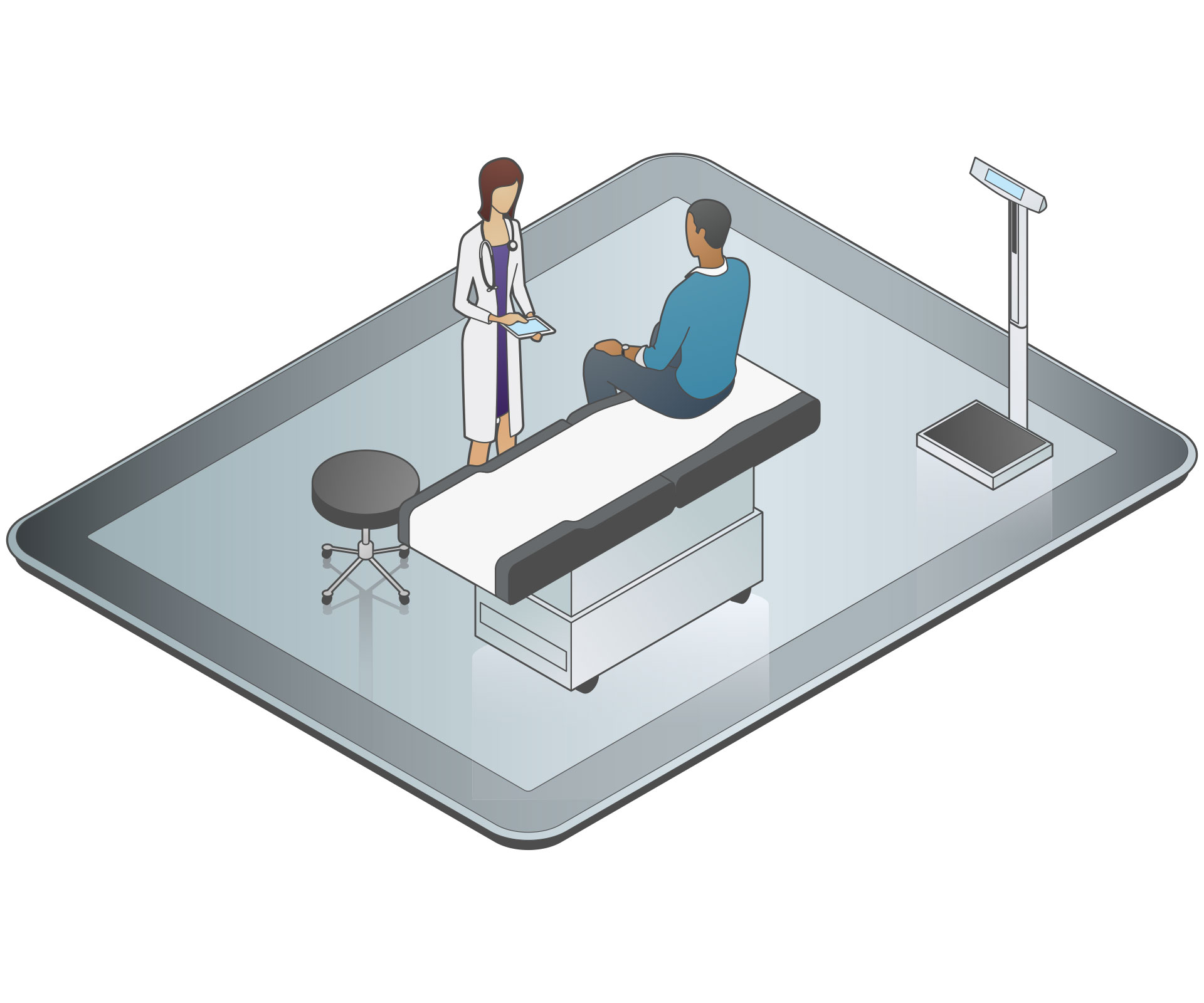Forecasts that we’ll soon be carrying our own personal doctor around in our pockets are probably right, given two-thirds of Kiwis have a smartphone and use them for a fast-expanding range of everyday needs from banking to parking.
A June report from Goldman Sachs says emerging digital health care could revolutionise disease diagnosis, treatment and prevention by making them widely accessible at a fraction of present costs. The changes are being fuelled by wireless technology advances, smartphone uptake and a shift in reimbursement for US health care from fee for service to a value-based approach.
The report divides digital health into remote patient monitoring, telehealth and behaviour modification. It says the first wave of health-care technologies to succeed will be those that improve patient care for a specific problem and reduce costs, particularly for chronic diseases that account for a third of what the US spends on health care.
The University of Auckland’s National Institute for Health Innovation (NIHI) was behind the first trial 10 years ago of a text-messaging smoking-cessation programme, since licensed overseas. NIHI’s Gayl Humphrey says clinical studies show patients have better outcomes when more engaged with self-managing their medical conditions.
Within five years, digital health is predicted to become as common as buying insurance or booking airfares online. Humphrey says solutions will range from text message alerts reminding people to take their pills to monitoring patients wearing implanted devices.
Already 170 New Zealand general practices have set up patient portals where people can self-manage their medical records, book doctor appointments and chat to their GP online. That’s creating business opportunities for New Zealand’s growing med-tech sector. US market intelligence and analysis service EvaluateMedTech forecasts that worldwide spending in the sector will exceed US$500 billion by 2020.
Humphrey reckons tech entrepreneurs should partner with health providers to trial their products; scientific research backing their efficacy will help convince risk-averse health organisations to spend money on them.
Here are three Kiwi start-ups trying to make it big with behaviour management technologies:
Melon Health
Melon Health has had a busy year. The three-year-old health company changed its name from Social Code, attracted new investment and recently won New Zealand’s inaugural Healthtech Award for Best Start-up Opportunity.
Chief executive Siobhan Bulfin has fresh ideas and contacts after attending a three-month mobile health accelerator programme in Kansas. And the Wellington-based company says it’s close to securing a partnership with a major US health insurer that should help its push into that lucrative market.
Bulfin started the company after one of her sisters developed breast cancer and she realised there was no simple way for those with the disease to discuss their treatment. She developed a technology platform, Goalpost, which uses game mechanics, big data and social technologies to help patients track their illness, receive care and behaviour-change coaching, and get peer and professional support.
Originally aimed at effecting change in addictive behaviours such as excessive drinking, it’s now targeted at patients with chronic diseases such as type 2 diabetes, which can be controlled but not cured.
In February, investor Punakaiki Fund became the company’s second-largest shareholder after Bulfin. Part of that money will fund medical trials to statistically measure the efficacy of its disease-specific programmes.
Competition in the mobile health market is increasing, but Bulfin says the company’s advantage is software that puts patients first so they will engage. “We can deliver programmes that extend the reach of health professionals and measure the outcomes.”
SHI global
It’s a family affair at Auckland health start-up SHI Global with husband and wife Allan and Susan Binks and their niece Rachel Vickery developing a platform to help patients self-manage recovery at home.
SHI estimates care for a patient actively involved in his or her treatment costs 30% less than for a disengaged one, freeing up resources for difficult patients and those without online access.
After selling an audiology chain, the Binks wanted to cost-effectively mainstream a physical exercise programme for consumers. They and Vickery, a Brisbane-based sports breathing specialist, developed a patient-centric software program to help change user behaviour.
SHI’s cloud-based platform Healthlnx, launched last year, sets out care on a timeline, linking health professionals and patients undergoing elective surgery or suffering from obesity and chronic diseases.
The timeline, which includes nutritional and exercise advice, helps patients stick to their treatment plan, says Susan Binks. The company is working on a mobile app and gamification techniques.
The programme has been successful trialled for a year at Brisbane’s St Andrew’s War Memorial Hospital on patients undergoing hip surgery. The care programme’s pre- and post-surgery information includes an online video credited with shaving hours off the time the anaesthetist spent briefing patients.
SHI is about to trial Healthlnx on 400 diabetic patients in conjunction with Diabetes Australia and Brisbane primary health care organisation Medicare Locals.
Holis health
This health start-up’s so new it has only just released beta testing of its patient-engagement software and will officially launch a consumer app and website soon.
Holis Health founder Jay Harrison and business partner Michael van Havill already have online company Rapid Reset and a claimed 8500 consumers paying a monthly subscription to lose weight.
The pair are now launching a mobile app under their new software platform, Hey Dot, the wellness equivalent of Apple’s intelligent personal assistant Siri. Harrison wants to sell Hey Dot to health providers to help change behaviours for any health issue, including chronic diseases.
Hey Dot screens each patient, tailors an intervention depending on the health problem, provides content and interaction with providers, and monitors progress.
Harrison says under existing weight-management programmes, people typically regain the weight they lose, whereas Hey Dot produces a long-lasting behavioural change by better engaging the patients in their own health care. “The engagement and technology are designed to change beliefs.”
He is seeking $1.5 million in angel investment to export the software program, targeting the US and European markets.
Words by: Fiona Rotherham
Photo: Getty Miages


